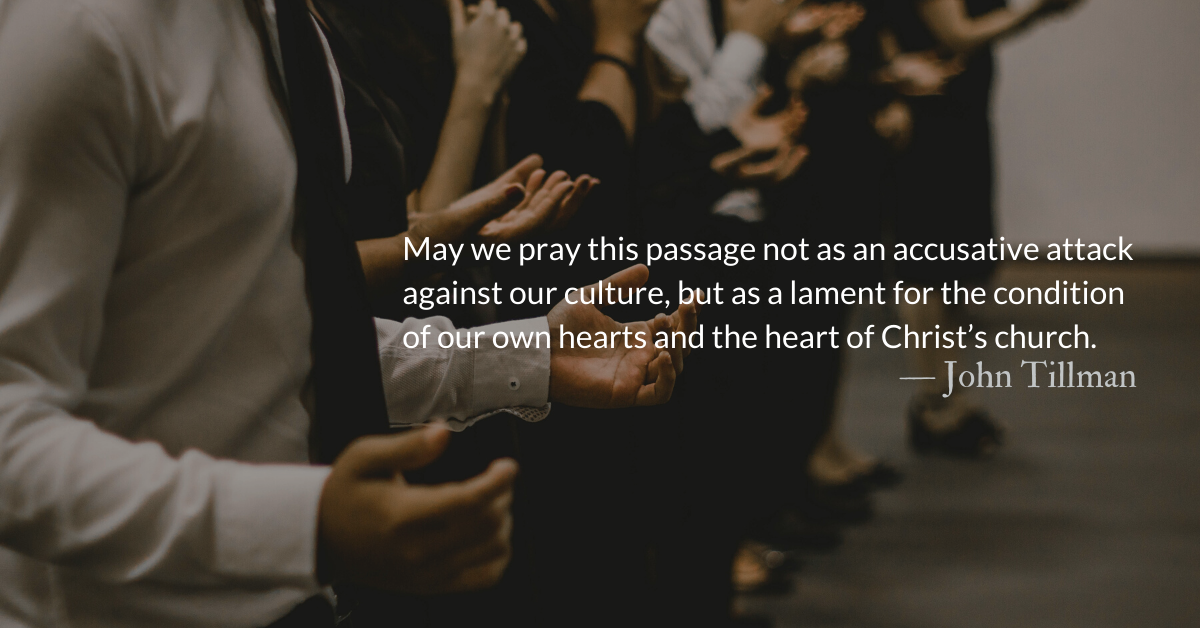Scripture Focus: Philemon 15-16
Perhaps the reason he was separated from you for a little while was that you might have him back forever—no longer as a slave, but better than a slave, as a dear brother. He is very dear to me but even dearer to you, both as a fellow man and as a brother in the Lord.
Reflection: Philemon’s Speck and Our Log
By John Tillman
Between Philemon’s time and now, many have struggled to live out Paul’s challenge to overcome the cultural mindset of slavery. It has been a struggle uniquely led by Christians.
However, when we look to the past, there is a temptation to sneer. Many modern moralists convince themselves that if they had lived in certain ages, they would have been on the “right side” of history and as a result they treat writers of those ages as hypocrites, refusing to learn from them.
This is foolish, arrogant, and is an attitude that is condemned by Christ himself.
Better that we remove the log in our own eye rather than seek to remove the speck from the eye of some deceased writer in another age.
In our own time, Paul’s challenge to Philemon is still applicable. Slavery may not be sociologically acceptable anymore, but it is still economically viable and, as a criminal enterprise, is alive and well. The United Nations estimates that over 89 million people are currently or have been enslaved in the past five years.
And though we may not have slaves, all of us have servants. Even those without in-home staff such as maids, butlers, chefs, or nannies, have an entire service industry taking care of everything we might need. The Bureau of Labor and Statistics estimated that in 2018 over 131 million people would be working in the service industries.
Our food is prepared for us, our coffee is customized for us, our packages are delivered for us, by servants. Yet our society denigrates manual labor of all kinds, and especially labor in the service industries.
We denigrate and look down on service so much that we use service jobs as a way to scare better grades into our kids. Service jobs are the stick that spurs youth toward the carrot of a better job after incurring massive debt attending college.
Our existence is supported by the labor of people who directly or indirectly serve us, just as Onesimus served Philemon. How we treat those individuals—both relationally and economically—shows whether we consider them part of the economic machinery or spiritual brothers and sisters.
Divine Hours Prayer: The Greeting
With my whole heart I seek you; let me not stray from your commandments.— Psalm 119:10
– From The Divine Hours: Prayers for Autumn and Wintertime by Phyllis Tickle.
Today’s Readings
2 Kings 18 (Listen – 6:52)
Philemon (Listen -2:52)
Thank You!
Thank you to our donors who support our readers by making it possible to continue The Park Forum devotionals. This year, The Park Forum audiences opened 200,000 emails with free, and ad-free, devotional content. Follow this link to join our donors with a one-time or a monthly gift.
Read More about Taking Advantage of the Desperate
How are our socially acceptable, market based, and entirely legal interactions with humans dehumanizing them?
Read More about Slavery, Racism, and a Lone Christian Voice
In the late fourth century a lone Christian voice spoke out against the oppressive institution of slavery in a way that none had before.











